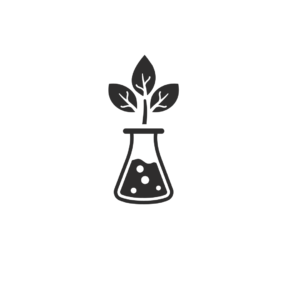Description
A Master of Science (M.Sc) in Bioinformatics is an interdisciplinary graduate program that combines biology, computer science, and information technology to analyze and interpret biological data. This field is particularly important in genomics, proteomics, and systems biology, where vast amounts of biological data are generated and require sophisticated computational methods for analysis. Here?s an overview of the program, including core components, skills developed, and potential career paths.
Program Overview
Duration: Typically takes 1 to 2 years to complete, depending on the student?s enrollment status (full-time or part-time).
Mode: Available in various formats, including full-time, part-time, and online options.
Eligibility: Generally requires a bachelor?s degree in a relevant field such as biology, computer science, bioinformatics, or a related area. Some programs may also expect a certain level of proficiency in programming or statistics.
Core Curriculum
The curriculum for an M.Sc in Bioinformatics usually includes core courses, electives, and a research component (thesis or project). Common subjects studied may include:
Introduction to Bioinformatics: Overview of bioinformatics and its applications in biology and medicine.
Biological Databases: Study of various biological databases and data management, including genomics and proteomics databases.
Molecular Biology and Genetics: Fundamental concepts necessary for understanding the biological aspects of bioinformatics.
Computational Biology: Algorithms and methods for analyzing biological data, including sequence alignment and protein structure prediction.
Statistics for Bioinformatics: Statistical methods for analyzing biological data, including hypothesis testing and data visualization.
Machine Learning in Bioinformatics: Application of machine learning techniques to analyze and model biological data.
Programming for Bioinformatics: Training in programming languages such as Python, R, or Perl, which are commonly used in bioinformatics tools and analysis.
Skills Developed
Computational Skills: Proficiency in using programming languages and computational tools to analyze biological data.
Data Analysis: Ability to interpret complex biological data sets and apply statistical methods effectively.
Problem-Solving Skills: Developing innovative solutions to biological problems using computational approaches.
Interdisciplinary Knowledge: Understanding the intersections between biology, computer science, and mathematics.
Communication Skills: Effectively conveying complex bioinformatics concepts and results to both scientific and non-scientific audiences.
Career Opportunities
Graduates with an M.Sc in Bioinformatics can pursue a variety of career paths, including:
Bioinformatics Analyst: Working in research institutions or pharmaceutical companies to analyze biological data and provide insights for research and development.
Computational Biologist: Conducting research that combines biological data with computational methods to advance scientific knowledge.
Genomic Data Scientist: Analyzing genomic data to identify genetic variations and their implications for health and disease.
Clinical Bioinformatician: Applying bioinformatics techniques in clinical settings to aid in diagnosis, treatment, and personalized medicine.
Biotechnology Specialist: Leveraging bioinformatics tools to develop new biotechnological products and solutions.
Research Scientist: Participating in academic or industrial research projects that require a strong foundation in both biology and computational methods.
Benefits of Pursuing an M.Sc in Bioinformatics
Interdisciplinary Expertise: Gain knowledge that is applicable in various fields, including healthcare, research, and industry.
Growing Demand: With the exponential growth of biological data, there is an increasing need for professionals skilled in bioinformatics.
Hands-On Experience: Engage in practical projects and research that provide valuable skills and experience in the rapidly evolving field of bioinformatics.
Additional Considerations
When considering an M.Sc in Bioinformatics:
Accreditation: Ensure the program is accredited and recognized by relevant academic and professional bodies.
Research Opportunities: Look for programs with faculty engaged in active bioinformatics research that aligns with your interests.
Internship Opportunities: Seek programs that offer internships or collaborations with biotech companies, research institutions, or healthcare organizations for practical experience.
If you have any specific questions about the M.Sc in Bioinformatics, its courses, or potential career paths, feel free to ask!









